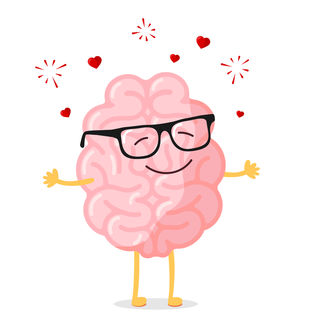Memory
How Old Do You Feel? The Answer May Reveal Your Brain Health
The powerful link between subjective age and memory.
Posted November 16, 2019 Reviewed by Abigail Fagan

“How old do you feel, compared to your real age?”
In a recent study, people were asked this question, and selected one of the following responses:
- “I’m younger than my real age.”
- “I’m the same as my real age.”
- “I’m older than my real age.”
The age people felt—or their “Subjective Age”—was a powerful indicator of their current brain health. In fact, those with a younger Subjective Age had a more youthful brain structure and stronger memory than those who felt the same age or older than their chronological age. Interestingly, younger Subjective Age has also been linked to better memory and planning skills 10 years later. Although a minority of people who rate their Subjective Age as older may have a more concerning memory problem, most people do not.
The research on Subjective Age raises an important question: Can people with older Subjective Age improve their future brain health by engaging in brain-healthy behaviors? Although long-term studies still need to be carried out to provide answers, there is fascinating research on Subjective Age that we can use right now to enhance our memory and brain health.
The Power of the Social Comparison
As with most subjective measures, estimates of Subjective Age often fluctuate—sometimes within minutes—depending on the situation. In a study examining the power of social comparison on memory performance, people were asked to complete a baseline memory test and estimate their Subjective Age. One group was told their memory performance was better than their same-age peers (“positive feedback”); one group was told it was the same (“neutral feedback”); and one group was provided with no feedback. All groups then completed a second memory test.
People receiving “positive feedback” not only felt younger but had significantly improved memory just minutes later. In contrast, those receiving “neutral feedback” showed improved memory but felt older, and those receiving no feedback showed no change in memory.
Lowering Subjective Age
Experiment with the following tips to see whether they lower your Subjective Age and enhance your memory:
Tip #1: Harness Peer Power. Ask several of your chronological age peers whether they have noted any age-related changes in memory. The goal isn’t to benchmark yourself against your peers in a spirit of competition, but rather to know you aren’t alone if you have experienced age-related changes. This may very well lower your Subjective Age and improve your memory in the short term. In contrast, Tips #2 and #3 may lower your Subjective Age in a sustained way by decreasing your actual rate of physical aging and improving your memory.
Tip #2: Get Up and Go. Older adults who walked faster rated their Subjective Age as younger than those who walked more slowly. In addition, people who were more involved in physical activity during their leisure time rated their Subjective Age as younger and their memory as stronger. These findings may relate to the impact of exercise on the brain. Not only is exercise linked to growth of the hippocampus (a core brain region involved in memory processing), but it’s also been shown to improve memory skills and decrease cellular aging. There are several ways you can personalize your exercise regimen to experience brain-boosting benefits, and possibly reduce your Subjective Age.
Tip #3: Cultivate Mindfulness. The rate of “Epigenetic aging” (the difference between chronological age and cellular aging) is significantly lower in people who practice mindfulness, or “moment to moment non-judgmental awareness.” In a provocative study, long-term meditators who practiced mindfulness for at least five years showed a progressively slower rate of epigenetic aging compared to those who did not meditate regularly. In fact, the effect grew more profound the more years someone meditated. In addition to its impact on aging, mindfulness has been shown to grow the hippocampus and enhance memory skills. There are several strategies that can help you get started in experiencing the benefits of mindfulness.
By combining situational and brain-boosting strategies, we might not only enhance our memory and brain health, but also lower our Subjective Age. And lowering our Subjective Age, in turn, may make us more likely to engage in brain-boosting activities. So the next time someone asks, “How old do you feel?” it may very well be younger than you do right now.
References
Chaix R, Alvarez-López MJ, Fagny M, Lemee L, Regnault B, et al. (2018). Epigenetic clock analysis in long-term meditators. Psychneuroendocrinology,85:210-4.
Chen YT, Holahan CK, Holahan CJ, & Li X. (2018). Leisure-time physical activity, subjective age, and self-rated memory in middle-aged and older adults. Int J Aging Hum Dev,87(4):377-91.
Kwak S, Kim H, Chey J, & Youm, Y (2018). Feeling how old I am: Subjective age is associated with estimated brain age. Front Aging Neurosci. doi: 10.3389/fnagi.2018.00168
Shao J, Xiao L, Zhang L, & Xin Z. (2018). 'Feeling younger, remembering better': the effect of experimentally induced subjective age on memory performance among Chinese older adults. Aging Ment Health,26:1-8.
Stephan Y, Caudroit, J, Jaconelli A, & Terracciano A (2014). Subjective age and cognitive functioning: a 10-year prospective study. Am J Geriatr Psychiatry, 22(11):1180-7.


